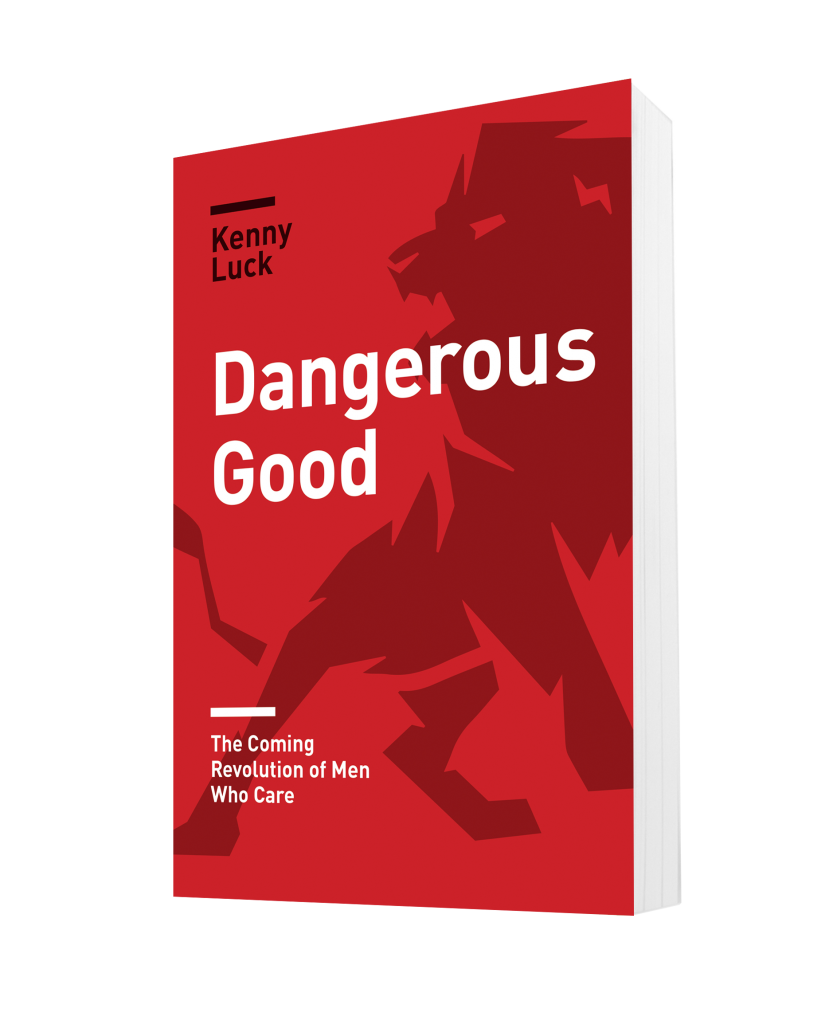Simba is a “lost” lion.
If you haven’t seen the Disney film about a lion who has lost track of who he really is, go find it, stream it, download it, whatever—and watch it. Simba is a lion cub, the son of the king: a clear bloodline, a clear connection to a clear destiny. At some future moment, he will take his father’s place. But as life unfolds for the lion cub, events disrupt his smooth transition to the top. He panics and runs (literally) from his identity, responsibility, and destiny into a world that takes the pressure off.
Simba is not lost directionally. He actually knows where he is. But he has “lost his way” in terms of his identity. That’s what makes this story so sad and so powerful at the same time. Lions are majestic. Lions belong to prides. Lions—especially the male ones—lead. But Simba grows into a young male lion separated from his pride.
The world Simba has built for himself eventually collides with reality: His pride—his kingdom—is suffering in the absence of a good leader. Simba starts receiving some direct messages that his pride needs him badly. Enter Rafiki the baboon, and Simba’s reckoning.
Simba tries to run from Rafiki and his challenge, but “You’re Mufasa’s boy” means the game is up. Simba is out of place, not doing what he’s supposed to be doing. It’s a grabbing by the ear, a kick in backside, and a confrontation of his true identity. Hanging in the air are basic questions: Why are you here? What are you doing? Have you forgotten who you are?
The Lion King is a parable in the tradition of Jesus’ parables, which ominously and accurately confront people where they are with who they are. It is particularly significant for this time in history—especially for Millennial men who identify with and follow Jesus Christ. Tens of millions of “Simbas” worldwide—sons of the King in the prime of their life—are being confronted by the Spirit of God, reminded who they truly are, what the true need of the Kingdom is right now, and what the truest purposes are for a son of the King. Out-of-place sons of God are being chased down, and the Holy Spirit is saying, “I know who you really are. The Kingdom calls. Lives are at stake, evil must be confronted, and you are the one who’s going to do it.”

It’s an exciting time as God gathers His own for a showdown with evil.
It’s a risk-filled and faith-stretching time of loving confrontation over our identity.
It’s time to take your place.
Leaving the “Bubble”
As the story of Simba vividly illustrates, sometimes even those of us who think we know who we are (or who have been told who we are our whole lives by our culture, our family of origin, or God himself) wander and need reminding. This is a prodigal journey, and it takes many forms—some you would never expect. Maybe college knocked you off the path your identity calls you to. Or perhaps you mistakenly felt you had to be your own man and make your own way, and the faith of your family didn’t allow for that, so you decoupled. Many men have chosen a Christ-free identity because they were attacked by their own—injured by some well-meaning but insecure Christians who made them feel as though they weren’t Christian enough. For others of you, innocent wandering turned into a sprint away from your truest identity and toward the world—you knew being a “Jesus guy” meant not winning the approval of others, which, at the time, meant more to you than God’s approval. Regardless of form, prodigal journeys always start with high hopes for the better. But the idealized version of life outside of Christ eventually bursts like a bubble, leading to prodigal pain.
It’s a bittersweet moment. The bitter is all the negative emotions that come with pain. The sweet is that with the “bubble” gone, you can return home to Jesus, who is eagerly waiting for you.
If you are reading this and are telling yourself, That’s not me and it never was, don’t get too smug. Many modern-day Simbas haven’t run, but they are most definitely playing it safe in the comfortable ranks of the pride. These are sons of the King—they grew up in the faith. Maybe they were dedicated to God as babies. They attended church and went to Christian camp every summer. They have multiple Bibles and smokin’ playlists on their phones right now that exalt Jesus. They may even sport a spiritually inspired tattoo, maybe a Greek word that communicates Jesus, love, grace, forgiven, the cross, or commitment. These sons may be young marrieds with kids, good guys, providers. They bring their families to church most Sundays, would never cheat on their women, and have a better relationship with their kids than their dad had with them. If you asked them if they love Jesus, their answer would be an unequivocal “Yes I do” or “I am a Christ-follower.”

Are they affiliated to Jesus? Yes. Are they activated for Jesus? No.
Are they good guys? Yes. Are they dangerous good? No.
Do they resist evil? Yes. Do they pose a threat to evil? Not even on the devil’s radar.
Unchallenged, they remain holy bubble boys, and “It’s all good, bro.” It doesn’t require real faith to keep up the bubble-boy lifestyle, and whatever that lifestyle is, it is not holy. It is, rather, safe. But God is intentionally bursting their bubbles.
Your bubble might just have popped right now.
God’s holding for you on Line 1.
You’ve been reading from chapter one of Dangerous Good: The Coming Revolution of Men Who Care by Kenny Luck. Finish reading chapter one for free here.
To learn more about Every Man Ministries, lead by Kenny Luck, check out www.everymanministries.com

